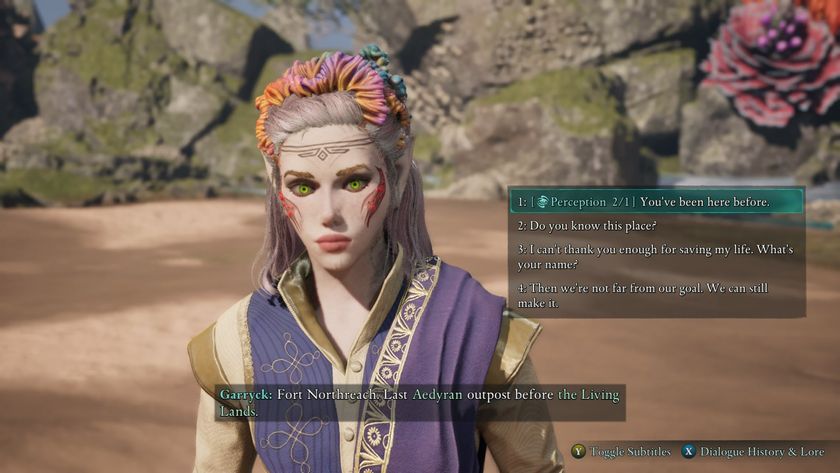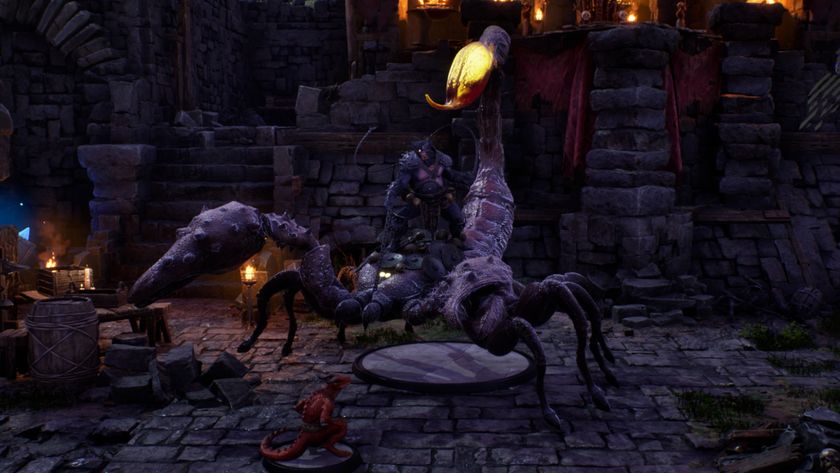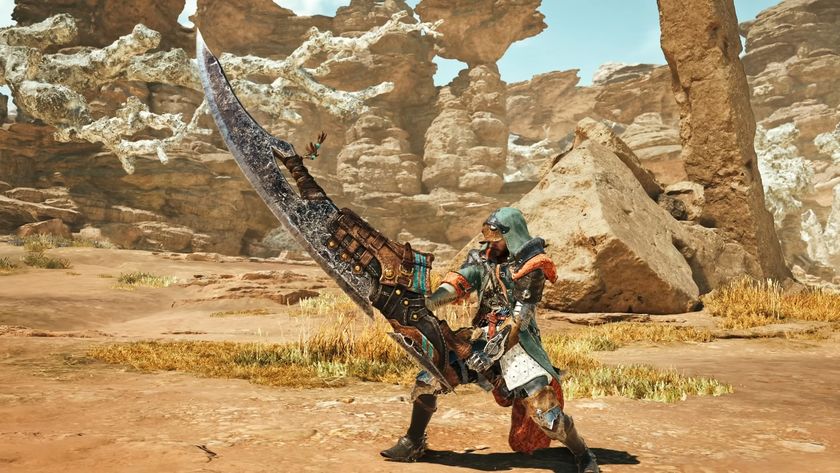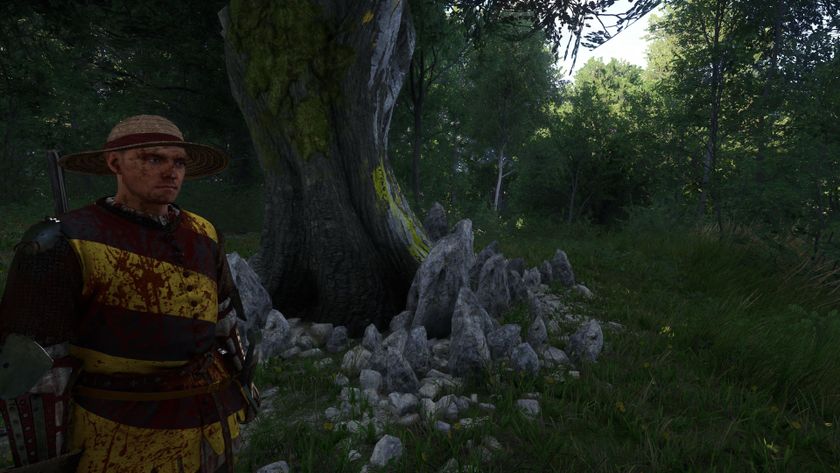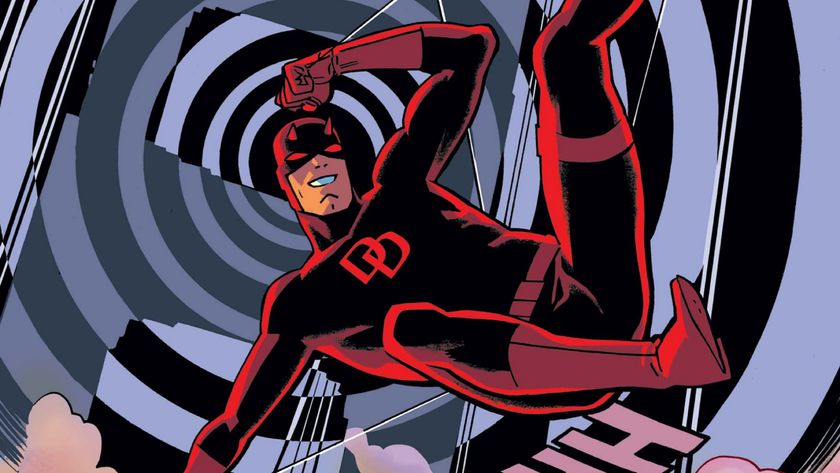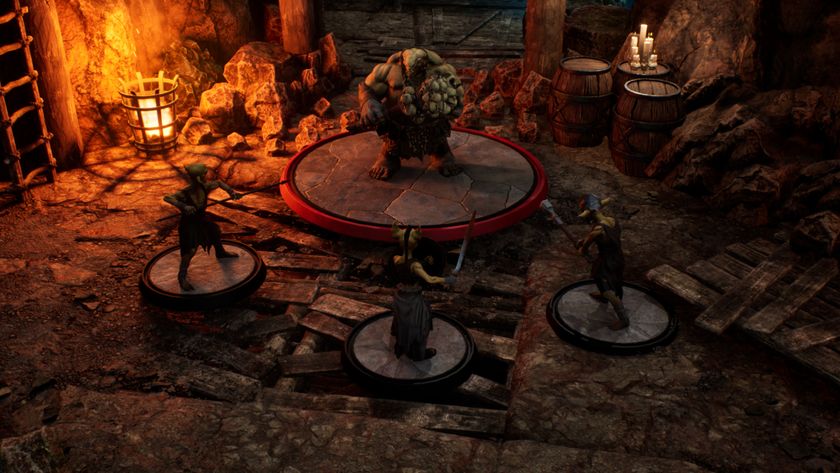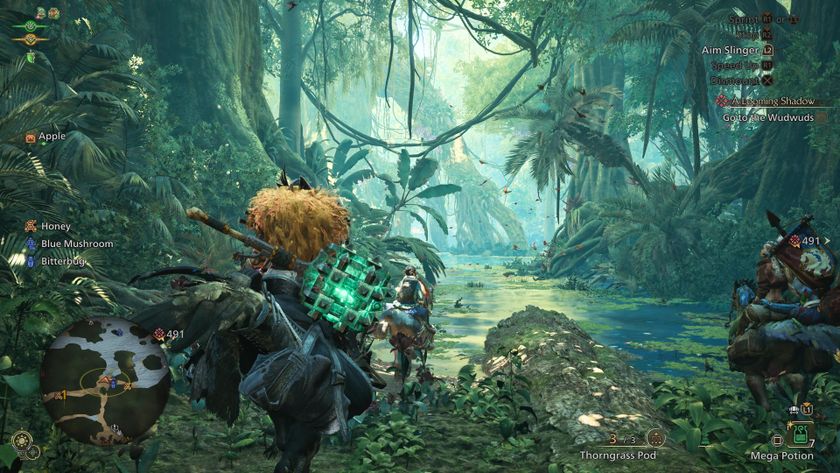18 life lessons taught by old-school videogames [ClassicRadar]
Everything I know, I learned from cartridges and CRT TVs

Classically trained
Anyone who grew up with videogames has had their world shaped by the experience of playing. This is mostly a good thing. We appreciate CoD 4, Grand Theft Auto IV or Braid trying to say something about the human condition. BUT its also a good thing those games are fun, because the message is often completely impractical. What exactly are the messages these games are conveying? War is Hell (but also awesome fun)? Urban America sucks? Don't build a nuclear bomb? No argument here, but that knowledge doesnt really integrate easily into the average gamers everyday life.
No, if you want simple, universally-applicable life lessons from videogaming, you need to go to an older, wiser, chirpier-music-having source... or better yet, 18 of them. Drag out the cartridge-loaded boxes and two-button joypads: It's time for some words of wisdom from your elders.
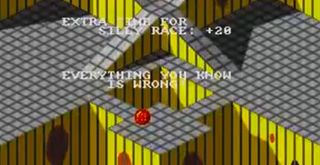
Marble Madness
The game: Sentient balls of glass roll downhill in their quest to reach the next slope. The madness comes from your lack of control: you can suggest to the marble that it might not want to fall off that precipice, but if that sumbitch is already rolling, there's little you can do to stop it.
The lesson: If you're expressly told, Everything You Know Is Wrong, believe it. That's the message that flashes onscreen at the beginning of MM's penultimate (as in, second to last) level, and it's the last time the game will make a damn lick of sense.

Contra/Probotector
The games: We in the Queen's lands [ed note Toms from New Zealand.] spent the 80s watching Teenage Mutant Hero Turtles and renting copies of Commando that were about three minutes long after the censors' cuts. So we were never at risk of being traumatized by the Contra titles. Until the PlayStation version, our versions of the Gryzor brothers were the less-contentious Probotector robots, for which the games were named.
The lesson: In a future in which we could invent robots with all the powers of ludicrously muscular men, why would we go so far as to program them to feel our pain even emitting human' screams? Because as we learn from the Contra/Probotector switch humans are infinitely cruel creatures.
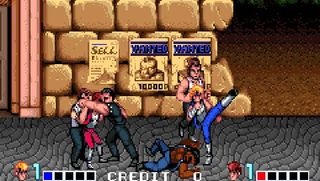
Double Dragon
The game: Billy and Jimmy Lee beat up every single person standing between and I mean that literally them and Billy's girlfriend. Once everyone else in town has been brutally pummeled, each man simultaneously realizes that the only thing standing between him and the girl is the other guy. Further fisticuffs ensue!
The lesson: Teamwork is just a fancy-pants way of postponing a fight. Also, bros before hos is only a valid philosophy if the ho in question happens to look like a gorilla in a chastity belt.
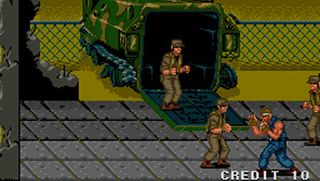
P.O.W.: Prisoners of War / Operation Wolf / Rush'n Attack
The games: 8-bit wargames didn't need your Normandy landing and your M1 Garand. There were more pressing issues at stake. For instance, the raging conflict between America and her hazily-defined enemies, who could be most easily identified by the Chairman Mao hats perched atop their swarthy faces.
The lesson: It was hard to be sure why our parents' generation busted a gut over the Noriega siege or Iranian hostage crisis. Any NES owner could tell you the complex geopolitics of the Cold War's twilight years would be solved in a day with the intervention of a lone warrior like P.O.W.'s blue jeans-clad Bart. Did nobody above 30 play videogames back then?
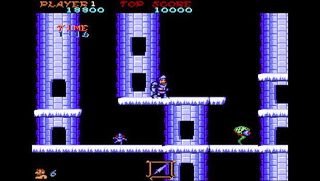
Ghosts 'n' Goblins / Ghouls 'n' Ghosts
The game: A knight in armor and underwear bravely faces off against every generic ghoul youve ever seen in a haunted house. If the legendarily difficult progression of stages in any G&G game doesn't chip away at your sanity, the revelation that recovering the princess from the adversary's clutches entails starting all over again surely will.
The lesson: Besides the notion that if a thing's worth doing, it's worth doing twice for ridiculously arbitrary reasons, the chief lesson of Ghouls 'n' Ghosts is a sartorial one. We are all naked underneath our clothes; but the guy who wears flesh-colored smalls (or heart-patterned boxers) and climbs ladders in the rain is a whole different kind of naked.
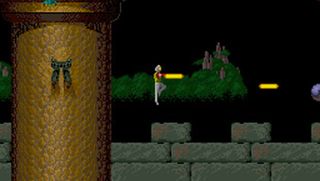
Chelnov: Atomic Runner
The game: Controversially inspired by the Chernobyl Incident (the game's title in Japan is Cherunoboru), Chelnov one-ups the comic-book trope of Exposure to a radioactive X gives you the power of X: surviving a meltdown grants a lucky Russian the power to run, shoot lasers, run, and run.
The lesson: One thing comics never addressed was the deleterious effect of radioactive enhancement: Chelnov has the power to run as far and fast as he pleases, but his nuked brain never thinks to use this power for evasion. Learn from Chelnov's mistake: run away from certain death occasionally.

Super Mario Bros.
The game: Having tried his hand at real estate, carpentry and plumbing, a plucky blue-collar everyman decides that running sideways and jumping on things may be his true calling. This becomes the formula for every game for the next 8 years, until John Romero invents space marines.
The lesson: Don't get Super Mario Bros wrong, it appreciates your effort but the Princess is almost always in another castle. The lesson here is either focus on the journey, not the destination, or the less poetic but more sensible ask for directions before leaving the house in the morning.
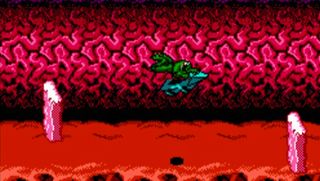
Battletoads
The game: Three not-turtles named after adolescent skin maladies vanquish evil stone pigs led by a sexy dominatrix, in an adventure that made perfect sense at the time. Best known for featuring a level commonly regarded as the single most difficult thing ever devised by people, until the level after it.
The lesson: You really can do anything you set your mind to. But it'll take hours, break your brain, and mean absolutely nothing as soon as you hit reset and have to do it all over again.
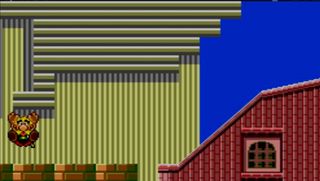
Asterix / Sonic the Hedgehog / Shinobi III
The games: Popular among bastard game designers throughout the ages, the fixed-scrolling level was a particular favorite among the bastards at Sega: the screen is going to keep moving, no matter what, and if you get squashed between a wall and the edge of the screen, you'll die without so much as an explanation as to how that's meant to work.
The lesson: The worst part of fixed-scrolling levels is when they introduce elements that punish you harshly for rushing ahead or falling behind. There's ostensibly some sort of lesson there about how life is a fixed-scrolling level, or dont dwell on the past or you could miss the future, but the more prosaic truth is this: Bastard game designers are bastards.
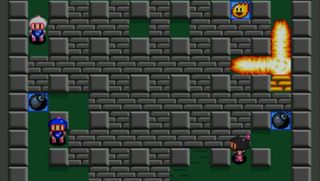
Bomberman
The game: A pint-sized cutie-pie plants enough explosives to make Timothy McVeigh, Ted Kaczynski and Mossad look like a pack of lightweights. There's the option to do this as part of a good-versus-evil story, but the only reason anyone ever plays Bomberman is for Versus Mode.
The lesson: Whereas competition in Street Fighter 2 or Doom involved tactical play, and respect was due for a good takedown, the best Bomberman player is always the most sociopathic asshole in the room. What can we take from this? Only that we are all alone in this world, sucking fleeting breaths on a forsaken rock drifting aimlessly through oblivion; but those who are good at Bomberman, doubly so.
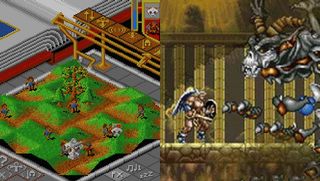
Populous / Actraiser
The games: It was inevitable that game designers would take the assume omniscient viewpoint and dispassionately direct human affairs for shits and giggles formula to its logical endpoint: Casting the player as God. But being all-powerful means never having any challenge, so then they scaled it back by adding enemies and casting the player as a passive-aggressive dick.
The lesson: Play Actraiser for a few hours and watch your feelings toward your subjects go from protective and loving to frustrated and abusive. It's no wonder the sequel ditched the God mode bits in favor of extra smashing-things sequences. As Snoop Dogg would later point out, being the boss means paying the cost. The cost of stultifying boredom.
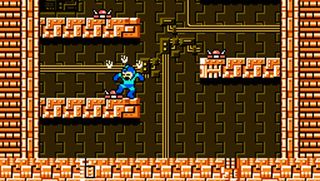
Mega Man
The game: A mad professor unleashes a squadron of lethal, stupidly-themed robots on a defenseless world. The obvious answer: ask a slightly-less-mad professor to send a pug-faced, theme-bereft robot to take them all down, one by one, without a single annoying sidekick of any kind. We'll see how long that lasts.
The lesson: Work out an order in which to tackle your problems. Studious Mega Man players know that taking on the killer 'bots in the right sequence is far more sensible than just taking on the one with the weakest name first. Apply thought to the problem and see your task go from insurmountable to downright marginally-surmountable!
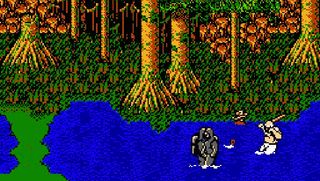
The Adventures of Bayou Billy
The game: His name's Billy, he lives in the Bayou, and he has adventures. That may seem vague, but bear in mind that Bayou Billy is one of the widest-reaching games of its time: Jumping! Driving! First-person shooting! It's basically a Wii game in an NES cartridge, but with a decent controller.
The lesson: Don't try to put a Wii game in an NES cartridge. While Billy himself had enough smarts not to don city-slicker trou and attend some fancy learnin' house, his game was notoriously overambitious. You can do one thing well, or you can do everything, really badly, in a stupid crocodile hat.
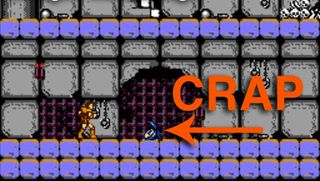
Castlevania 1-3
The games: An elderly man is mercilessly persecuted by successive generations of leather-clad, bondage-fixated upstarts who hate him and all of his kind. They break into his house and smash his things, and sometimes they burn crosses on his property. Obviously, you play as one of those upstarts.
The lesson: Don't pick up watches that you find lying around old peoples' houses. They'll do you no good and you might get in trouble. Unless you're in one of the rooms where disembodied heads fly at you, obviously, in which case it's steal-that-watch o'clock.

Bonk's Adventure
The game: The eponymous hero, a cave-dwelling chrome-dome with teeth apparently made of adamantium, battles dinosaurs in a series of prehistorically spurious escapades. No mushrooms for Bonk: his powerups are slabs of indeterminate meat.
The lesson: Before Oprah brought compulsive overeating to public awareness, Bonk was providing a sobering example of the disorder. Disregarding folk wisdom and eating chunks of meat bigger than his head will boost Bonk's power but he'll roam the land in a fury, unable to forgive himself for the binge-eating he can't help but commit. Learn from Bonk: Food addiction is a tragic affliction.
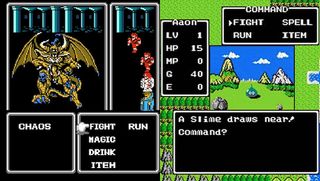
Final Fantasy / Dragon Warrior
The games: So there was once Dungeons and Dragons, or Ren Faire daydreaming with more rules. Game designers tried to streamline D&D by giving all the dice-rolling and enemy-moving jobs to a computer, freeing humans up to focus on creativity and shared storytelling; That's nice, answered Japan, but wouldn't you rather hunt slime-blobs in a dodgy Tolkien pastiche?
The lesson: Blah blah hard work and honest graft make you a better person, yadda yadda elbow grease, blah blah blah up by your bootstraps. Yes, it's nice to learn that by putting in hours of slog, you too can save the kingdom; it would be a while longer before RPGs would append that maxim with or you could just play something less mind-numbing.

Bubble Bobble / Snow Bros / Tumblepop
The games: Bubble Bobble pioneered the catch and release subgenre of platformer, pitting snot-blowing dinosaurs against cutesy reapers and whales. This firm grounding in incomprehensibility inspired the pudding-goblin heroes of Snow Bros, as well as Tumblepop's off-brand Ghostbusters.
The lesson: The shared message of these games is merciless cruelty. Captured enemies who go too long without being snuffed will come back, twice as angry as before so unlike milquetoast Commando or Mercs fans, the proficient Bubble Bobbler will discard mercy and fill his heart with hate.
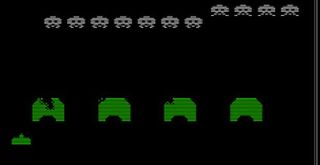
Space Invaders
The game: No one would have believed, in the last years of the twentieth century, that an alien force could develop the technology to reach and invade Earth, then use that technology to hover uselessly while an idiot with a pea-shooter hid in a bunker and slowly shot them down one, by one, by one...
The lesson: Space Invaders is a resource management game masquerading as the world's first shoot-em-up. The key lies in knowing when to use the provided bunkers as cover, and when to shoot them out for a clear line of fire. From this, we learn that sometimes to survive, it's necessary to destroy your own-- oh, sod it, just play Galaga instead.

The good old days
What unconventional wisdom have you found in old (or newer) games? Let us know in the comments.
12DOVE was first founded in 1999, and since then has been dedicated to delivering video game-related news, reviews, previews, features, and more. Since late 2014, the website has been the online home of Total Film, SFX, Edge, and PLAY magazines, with comics site Newsarama joining the fold in 2020. Our aim as the global GamesRadar Staff team is to take you closer to the games, movies, TV shows, and comics that you love. We want to upgrade your downtime, and help you make the most of your time, money, and skills. We always aim to entertain, inform, and inspire through our mix of content - which includes news, reviews, features, tips, buying guides, and videos.
In honor of the holiday season, we're sharing some of our favorite stories from GamesRadar's past over the seasonal break. Enjoy it!
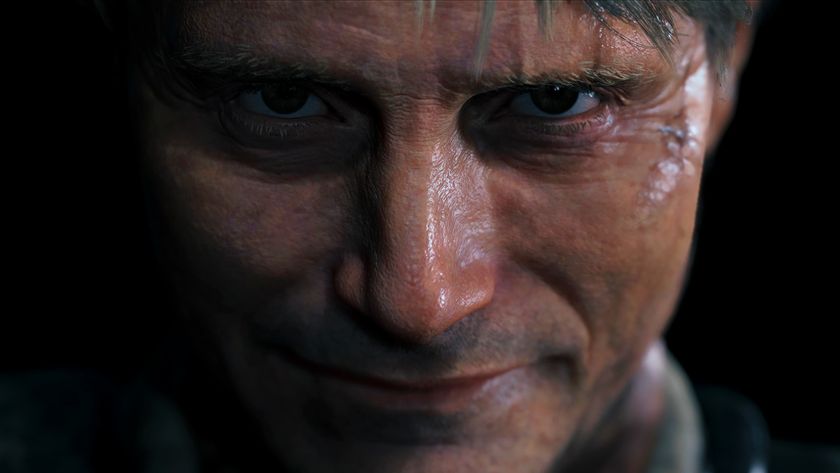
Death Stranding 2: On the Beach gets new details from PlayStation, teasing fans with info on its combat, story, and "large open-world environments"
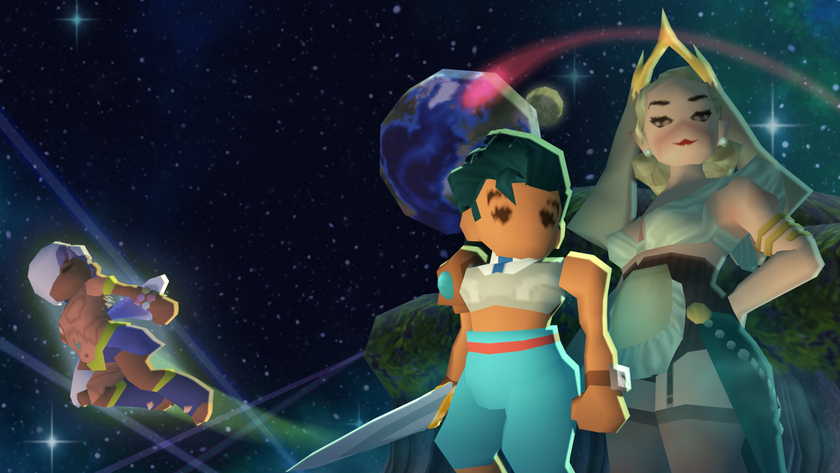
The devs of a legendary indie Zelda-like have a new retro action game with "bumpslash" combat, and its Steam Next Fest demo is a gem: "Fans of Ys, take note!"

Death Stranding 2: On the Beach gets new details from PlayStation, teasing fans with info on its combat, story, and "large open-world environments"

The devs of a legendary indie Zelda-like have a new retro action game with "bumpslash" combat, and its Steam Next Fest demo is a gem: "Fans of Ys, take note!"



